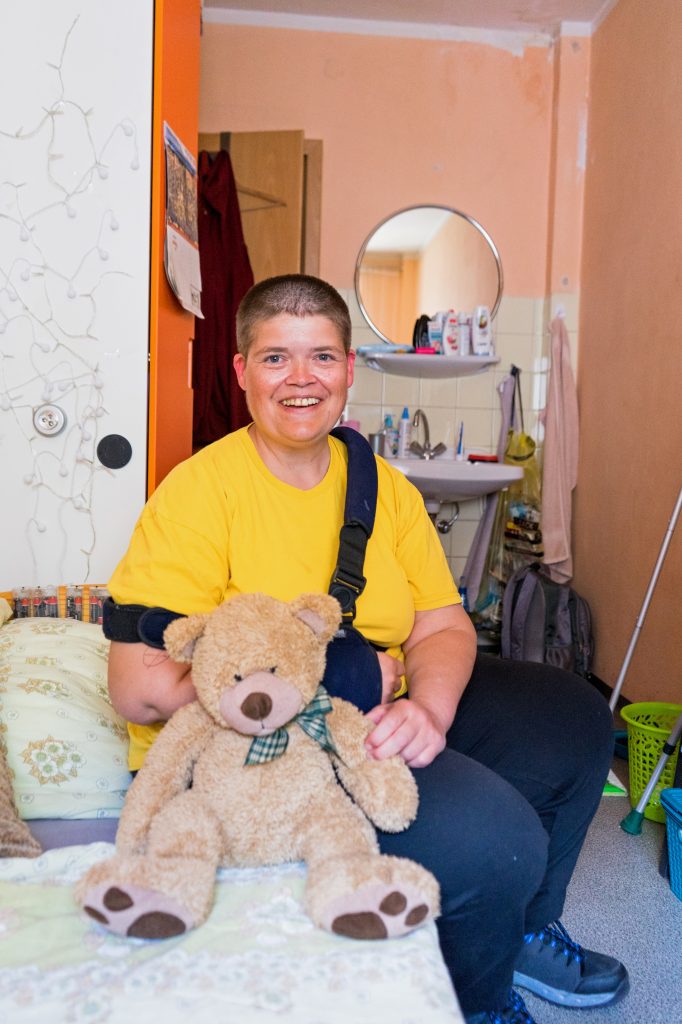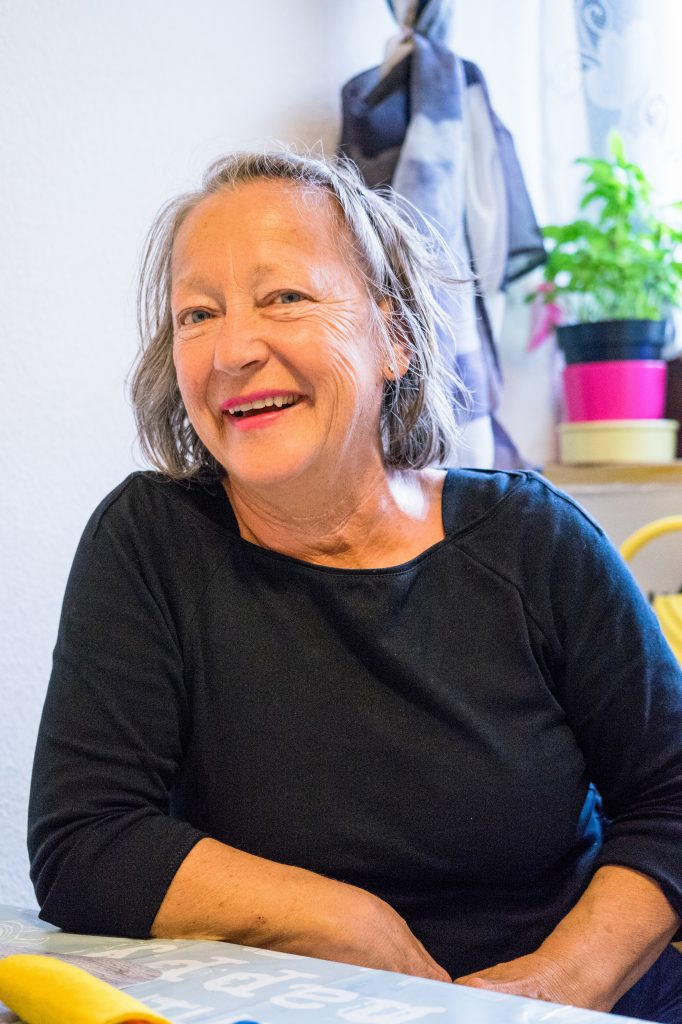In the small kitchen next to the wall is a square, plastic-topped table with a bunch of red and white roses. A pack of cocoa, one of noodles, and some fruit, are on the wooden shelves. It looks like a perfectly normal flat-share apart from one thing: there’s a sticker with ‘Room 9’ on the edge of the shelf on the left and ‘Room 10’ on the edge of the one on the right. Why are there numbers instead of names? It’s because if all goes well, the inhabitants won’t need to stay for long.
Men must not enter Haus Sonnenschein—which translates in English to “Sunshine House.” It is the only homeless shelter in Nuremberg that is just for women. The manager, Christine Kunstmann, is not keen on the term “homeless.” As she says, “women end up here all too quickly”, and “when we talk about ‘homelessness’ lots of people immediately assume it’s because the homeless are asocial”, when in fact former teachers, and the executive secretary of a respected Nuremberg firm once stayed in Haus Sonnenschein.
Nor does the word ‘shelter’ fit Haus Sonnenschein very well: on each of the three floors of the house there’s a corridor leading to three or four single rooms. The rooms are brightly painted with plenty of space for a bed, wardrobe, table and chest of drawers. There is a shared bathroom and kitchen on each floor. On a weekly basis the inhabitants share the cleaning duties on their floor. “Everybody does their own thing but they do sometimes meet over breakfast or whilst having a smoke on the balcony,” says Andrea Gabler, who has been living here since the start of the year. Is it a desirable spot? She considers for a moment and then nods: “Yes, it certainly is.”
Haus Sonnenschein offers its inhabitants single rooms—no bunkbeds. This was a conscious decision on the part of Christine Kunstmann: “If we had bunk beds in each room, we could serve twice as many people but first and foremost I want to enable women to have a pleasant life rather than maximise income.”
The use of this house, in the middle of town, has developed over time. In the early years, from 2006, it was a refuge for women who were victims of domestic violence; somewhere to go to and be temporarily hidden. Since then many women have used the house as a long-term residence. They are often able to pay the 330 Euros in rent themselves because they have a pension or a part-time job. The woman who has occupied a room for the longest time has been here ten years.
The women are only meant to stay until they’ve found a job or affordable accommodation. But Christine Kunstmann sets no fixed time limit and sometimes feels that she has to justify this: “I can’t throw someone out when I know they won’t be able to manage without any support.” Kunstmann speaks animatedly when she talks about how difficult it is for the women to move into regular home: “when they do find affordable accommodation it is usually in a block of flats, where socialising is structurally difficult and a 70-year-old woman living alone does not feel safe…Without sufficient support, very many are likely to fall apart again. What’s needed is a complex of small, affordable flats with someone they can go to for help on site.”
The rooms are brightly painted with plenty of space for a bed, wardrobe, table and chest of drawers. There is a shared bathroom and kitchen on each floor. On a weekly basis the inhabitants share the cleaning duties on their floor.
Christine Hartmann’s view of the real state of our society is harsh: “If you look closely, it’s a patriarchy. I’m not sure that we’ll ever have complete equality, at least not in my lifetime.” And so, Haus Sonnenschein must remain a retreat for women only, where they can get themselves together and find a new way in life. This is certainly what’s needed, as is evident from the testimony of some of the inhabitants, such as Syringa Steinberg who says, “I’m glad to be able to be at peace here away from men.”
Syringa had spent 30 years with her husband but after a stroke and two lots of surgery he was a changed man: the pain made him aggressive and she bore the brunt of this. Syringa got progressively weaker and at the same time began to suffer from epilepsy. She has been able to recover at Haus Sonnenschein.
Most women are referred to Haus Sonnenschein by social services or some other organization. In principle almost every woman who wants a room has the chance of getting one. If, though, she abuses this opportunity, she’ll be shown the door. As Kunstmann explains: “If for example someone does not keep to the cleaning [schedule], she’ll receive a warning the first couple of times but on the third occasion, she’ll have to move out.”
The person in charge of making sure the women are following the house rules is house representative, Claudia Popp. Popp lives in the house herself, and she supports the women and smoothes out minor disagreements.
Kunstmann is trying to gently prepare the women for an independent life. Keeping their accommodation clean is as much a part of this as personal hygiene and treating others with respect. She hopes that for most of the women, their stay at Haus Sonnenschein will be temporary. Communal living is only a stop-gap for most and that’s as it should be.
Translated from German by Louise Thomas. This story originally appeared in Strassenkreuzer, the street paper in Nuremberg, Germany. Courtesy of INSP.ngo




